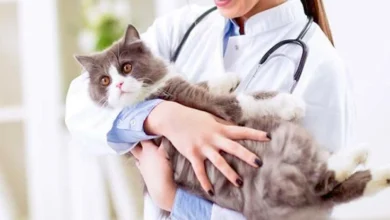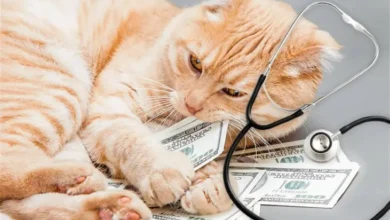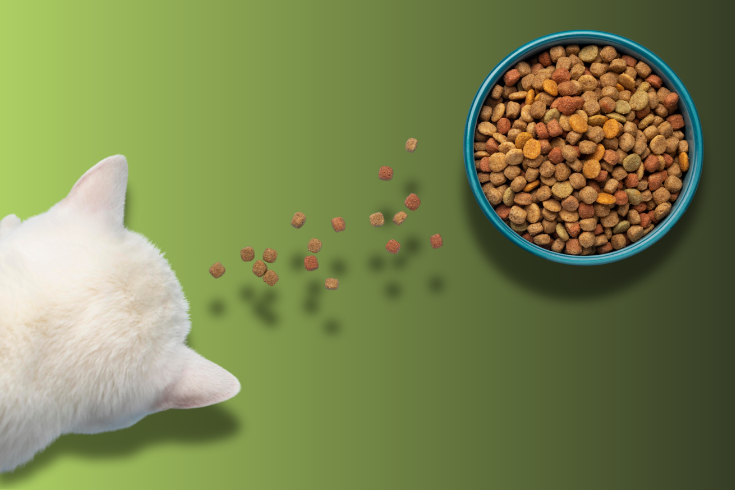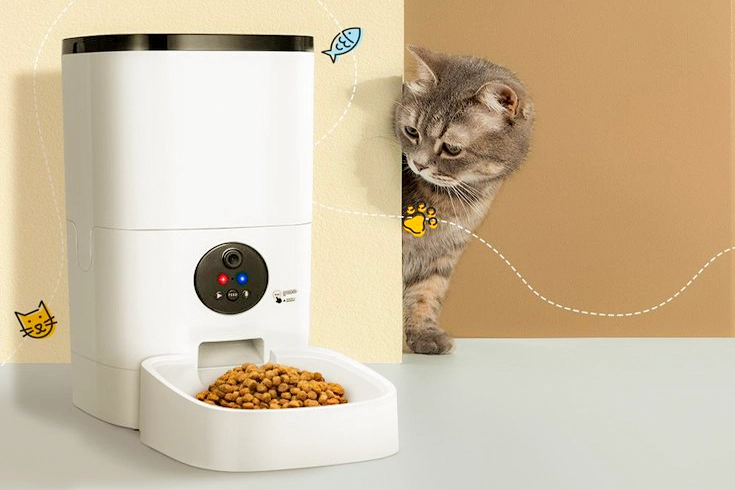
Why Is My Cat Throwing Up Undigested Food | Top 10 Reasons
Most pet owners experience this unfortunate moment of watching their cats throw food after eating. Being a caring pet parent, the concerning point is why is my cat throwing up so much? While you might think it is safe and you can crawl back into your bed, it definitely can cause problems.
Although cat owners can sometimes confuse vomiting with regurgitating and often wonder why is my cat throwing up undigested food, there is an insignificant difference that can affect the care plan. If a cat vomits, there can be several reasons behind it, from stress to stomachache. This informative blog by Pet Life Expert is meant to provide the best possible reasons why is my cat throwing up after eating. Let’s talk about it!
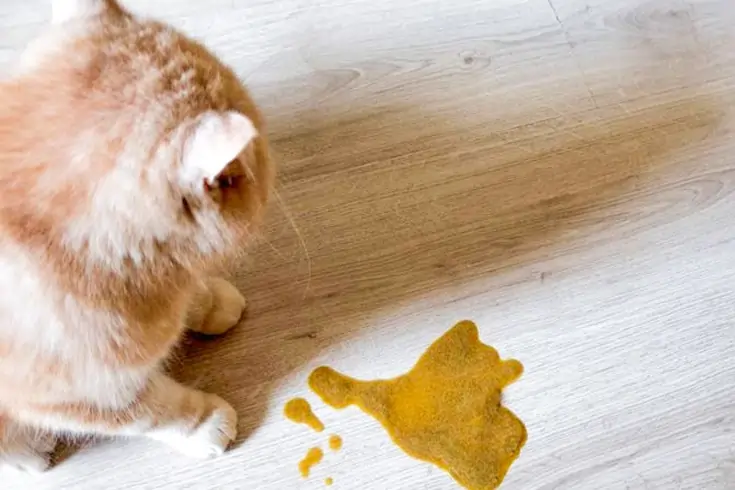
Vomiting vs. Regurgitation | Understanding the Difference
Cats are said to be picky eaters, but sometimes they frequently and quickly. As a result, sometimes they begin to throw out their food. While sometimes it’s vomiting, sometimes it’s regurgitation. And no wonder, pet parents fret on why is my cat throwing up liquid.
Vomiting is the forceful expulsion of food from the stomach, while regurgitation is the passive expulsion from the esophagus. It explains that vomiting is an active process while regurgitation is a passive process. Let’s differentiate what can be the possible causes behind vomiting and regurgitation.
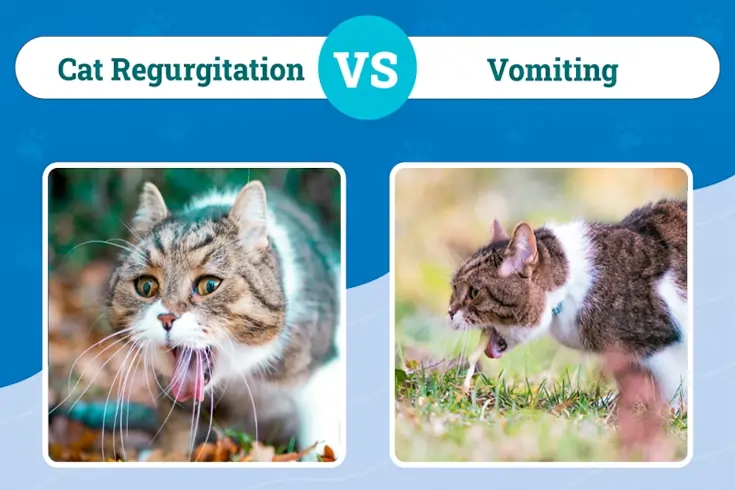
Some Common Causes of Cat Vomiting
Along with many other pet owners, if your concern is the same, like, why is my cat throwing up after eating? You are at the right place. That’s because here we’ll be talking about some reasons why a cat can vomit.
- Hairballs
- Cancer
- Worms
- Gastric irritation
- Medication reaction
- Hyperthyroidism
- Kidney disease
- Quickly eating too much food
- Too much exercise directly after eating
- Digesting non-food items (toys, plants, grass)
Some Common Causes of Cat Regurgitation
Unlike vomiting, the reasons behind regurgitation are a little bit different. For your understanding, some of the obvious reasons of cat regurgitation are mentioned below:
- Botulism
- Lead toxicity
- Hiatal hernia
- Megaesophagus
- Reflux Disease
- Esophagus Inflammation
- Esophageal Constrictions
- Gastro-sphincter Problems
- Masses in the Esophagus
- Foreign body Presence
Is Cat Vomiting a Sign of Concern?
When cat vomiting is a sign of concern might be the question in every pet owner’s mind. For the cat’s safety and health concerns, it is advised to have detailed information about whether a cat’s vomiting can be dangerous or not & why is my cat throwing up yellow liquid.
- Cats throwing up once or twice but acting normal is not an issue.
- If your cat keeps throwing up and appears unsteady or lethargic, call your vet.
- Also, if your cat has eaten something dangerous, like a drug, toxic food, or poisonous houseplant, consult a vet right away.
- If you notice blood in your cat’s vomit, it signals the bleeding between the upper small bowel and mouth.
- If a cat’s vomit smells or looks different, like feces, it indicates something serious.
- A cat throwing up bile is another reason to make an emergency call to your vet.
All these symptoms indicate a serious illness or disease that requires immediate attention, care, and treatment.
Signs When You Can Call Your Veterinarian
Why is my cat throwing up undigested food? This is the point of concern for every cat parent, which is why we’ve listed possible causes and symptoms. Now that you know what makes them vomit, let’s consider when this situation needs serious consultation with a vet.
- When vomiting lasts for more than 24 hours
- Unsteady gait
- A lethargic appearance
- Cat vomit with blood
- Vomiting after a refusal to eat
- Constant vomiting (once/twice a week)
- When cat’s stomach is painful enough to touch
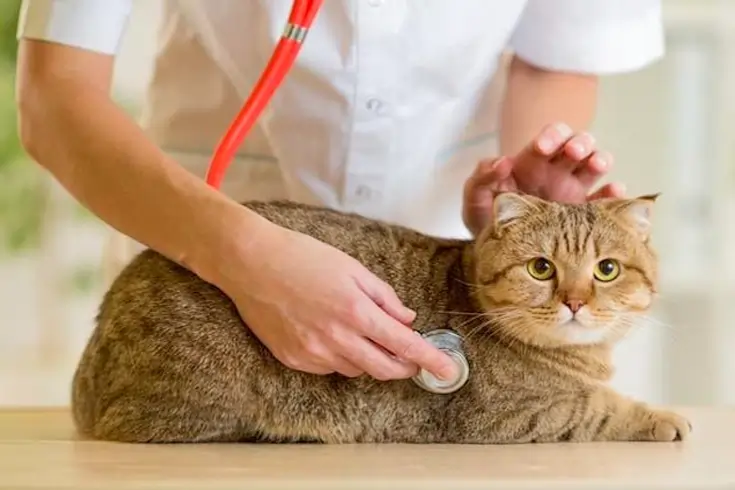
Some Best Home Remedies for Cats Throwing Up Undigested Food
For pet parents being worried, why is my cat throwing up after eating but acting normal? There’s no need to fret. That’s because it can be regurgitating, which is confused with vomiting. The most obvious reason behind it is that they either ate too quickly or too much.
In this scenario, the situation is in control and doesn’t require the emergency assistance of a vet or nutritionist. You can comfort your cat by helping them in many ways. Here are some of the useful tricks mentioned to help your cats relieve this vomiting issue.
1-Feed Less at Each Serving
Sometimes cats overindulge food, which is why they end up vomiting. In this case, portioning the food is strongly advised. Consult your vet about the calorie intake per day and serve that specific portion of stomach sensitive food throughout the meals of the day.
2-Check Cat Food’s Temperature
Feeding food to your cat requires carefulness; if it’s stored in the refrigerator, it’ll be too cold for a cat to eat. Ensure heating the food to room temperature so that it can be easily ingested without causing any illness and any side effects.
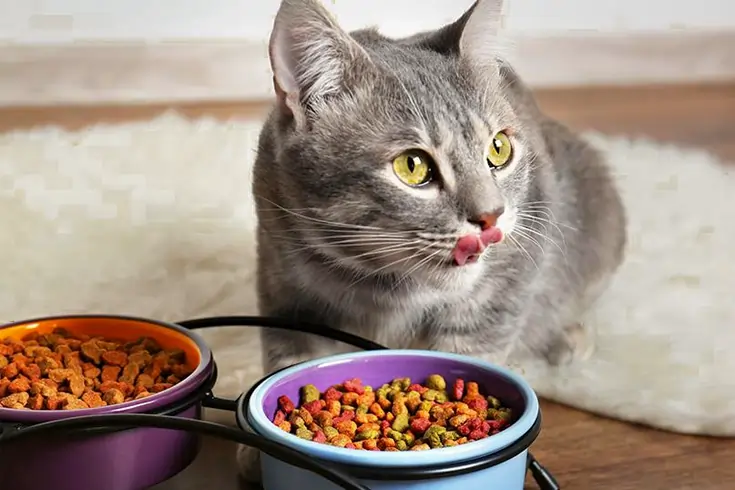
3- Eating too Fast or Slow
Some cat owners spread their food before serving, which results in slow eating. Cats think that there’s still plenty to eat, and they begin to feel like vomiting. Also, when they eat fast, they simply gulp down which also results in vomiting. So, practice giving them food in right amount, at the right time.
4-Make Meals Consistently
Serving your cat’s different food at different schedules can disrupt their stomach function. Try to give them food at the same time and in the same place so that they are there at the feeding times to ensure consistent food ingestion.
5-Eliminate Stressors
Try to eliminate everything from their schedules that can cause stress to ensure that they are separated from anxiety. Keep automatic cat feeding dispensers, water bowls, and litter boxes or mats near them on a routine basis.
6-Keep them Hydrated
Another homemade remedy to adapt for your cat that is throwing up is to keep them hydrated. Offer them water daily using a water dispenser and ensure they get the enough amount to stay hydrated and healthy.
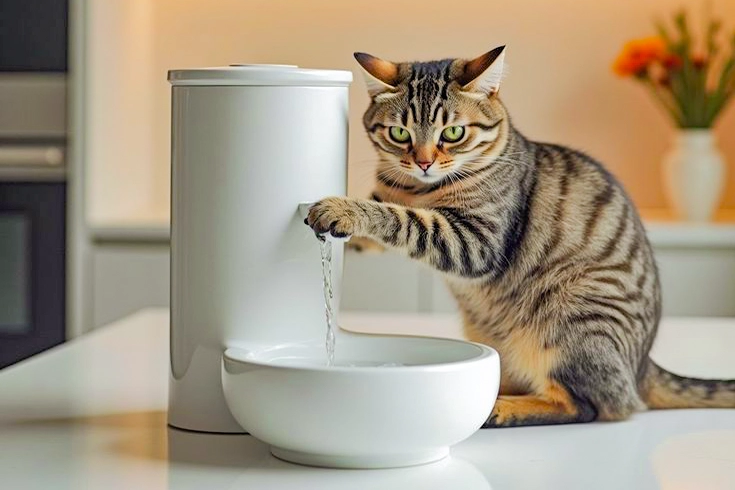
How Vets Can Help Address Frequent Vomiting Issues?
Whether you are concerned why is my cat throwing up clear liquid or avoiding ingestion, vets have experience to diagnose those concerns. The veterinarian has the specialized tools and knowledge to diagnose and treat the illness, disease, or vomiting in cats. By performing specific tests, including blood work, X-rays, and ultrasounds, you can get a clear picture of your cat’s health. Here are the key steps that are often performed by vets.
1-Diagnostic Testing
The first step is diagnostic testing, in which imaging, blood tests, and endoscopy can help identify the potential vomiting cause. Any kind of obstruction will be revealed through imaging, and blood sample results indicate the ongoing condition of stomach, kidney, or hyperthyroidism issues.
2-Dietary Adjustments
In case your cat is food sensitive, your vet recommends the prescription food with some dietary balances and adjustments. For food sensitive cats, you can prefer a limited ingredient and hypoallergenic cat food, which helps prevent the situation that could lead to vomiting.
3-Medication or Specialized Treatments
Any kind of gastrointestinal inflammation, stomachache, or kidney disorder requires a special prescription and medication. Get a vet’s assistance to ingest foods that reduce irritation and support digestive health. After identifying the root cause, vets recommend pet parents a specialized treatment plan.
It’s a Wrap
Having a cat at your home can be a common concern of a caring pet owner, why is my cat throwing up undigested food hours after eating? Before you begin the treatment, it is important to understand the root cause and the clear difference between vomiting and regurgitation. Both conditions can be the result of different internal issues. So, whenever your cat vomits more than one or two casually, it is strongly suggested to seek the vet’s assistance. To get your cat out of this situation, it is advised to give a prescribed diet to your cat until they become healthy again.
FAQs | Frequently Asked Questions
Why is My Cat Throwing Up Undigested Dry Food?
Cat throwing dry food can be of many reasons like eating too fast, allergy trigger, and gastrointestinal issues. In case of frequent vomit, veterinarian visit is high recommended.
Why My Cat Throwing Up White Foam?
A white foam thrown up by cats can be of various reasons like digestive upset or empty stomach. The white foam can be of mucus and bile combination that can lead to hairballs, indigestion, food allergies, parasites, and gastritis.
Why My Cat Vomiting Yellow Liquid?
Most often, liver or gallbladder disease can be the reason of cat throwing up yellow liquid. When bile irritates the empty stomach lining, it results into vomiting. It can also be due to upset stomach and pancreatitis.
Is it Normal Cat Throwing up Blood?
No! A cat throwing blood is not normal at all, as it is a serious health issue. It can be due to different underlying conditions like ulcers, inflammation, and foreign objects. So, it is essential to seek immediate vet’s assistance.
